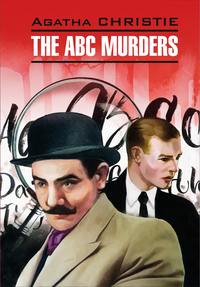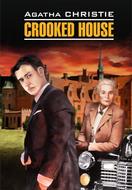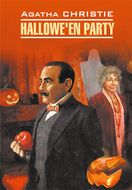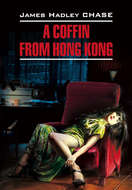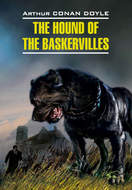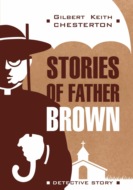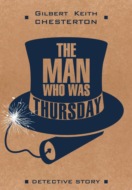Kitabı oku: «The A B C Murders / Убийство по алфавиту. Книга для чтения на английском языке»
To James Watts
One of my most sympathetic readers
The A B C Murders © 1936
Agatha Christie Limited.
All rights reserved.
AGATHA CHRISTIE© POIROT and the Agatha Christie Signature are registered trade marks of Agatha Christie Limited in the UK and elsewhere.
© КАРО, 2019
Foreword by Captain Arthur Hastings, О. В. E.1
In this narrative of mine I have departed from my usual practice of relating only those incidents and scenes at which I myself was present2. Certain chapters, therefore, were written in the third person.
Wish to assure my readers that I can vouch for the occurrences related in these chapters. If I have taken a certain poetic licence in describing the thoughts and feelings of various persons, it is because I believe I have set them down with a reasonable amount of accuracy. I may add that they have been “vetted” by my friend Hercule Poirot himself.
In conclusion, I will say that if I have described at too great length some of the secondary personal relationships which arose as a consequence of this strange series of crimes, it is because the human and personal element can never be ignored. Hercule Poirot once taught me in a very dramatic manner that romance can be a by-product of crime.
As to the solving of the ABC mystery, I can only say that in my opinion Poirot showed real genius in the way he tackled a problem entirely unlike any which had previously come his way.
Chapter 1
The Letter
It was in June of 1935 that I came home from my ranch3 in South America for a stay of about six months. It had been a difficult time for us out there. Like everyone else, we had suffered from world depression4. I had various affairs to see to in England that I felt could only be successful if a personal touch was introduced. My wife remained to manage the ranch.
I need hardly say that one of my first actions on reaching England was to look up my old friend, Hercule Poirot.
I found him installed in one of the newest type of service flats5 in London. I accused him (and he admitted the fact) of having chosen this particular building entirely on account of its strictly geometrical appearance and proportions.
‘But yes, my friend, it is of a most pleasing symmetry, do you not find it so?’
I said that I thought there could be too much squareness and, alluding to an old joke, I asked if in this super-modern hostelry they managed to induce hens to lay square eggs.
Poirot laughed heartily.
‘Ah, you remember that? Alas! no—science has not yet induced the hens to conform to modern tastes, they still lay eggs of different sizes and colours!’
I examined my old friend with an affectionate eye. He was looking wonderfully well—hardly a day older than when I had last seen him.
‘You’re looking in fine fettle6, Poirot,’ I said. ‘You’ve hardly aged at all. In fact, if it were possible, I should say that you had fewer grey hairs than when I saw you last.’
Poirot beamed on me.
‘And why is that not possible? It is quite true.’
‘Do you mean your hair is turning from grey to black instead of from black to grey?’
‘Precisely.’
‘But surely that’s a scientific impossibility!’
‘Not at all.’
‘But that’s very extraordinary. It seems against nature.’
‘As usual, Hastings, you have the beautiful and unsuspicious mind. Years do not change that in you! You perceive a fact and mention the solution of it in the same breath without noticing that you are doing so!’
I stared at him, puzzled.
Without a word he walked into his bedroom and returned with a bottle in his hand which he handed to me.
I took it, for the moment uncomprehending.
It bore the words:
Revivit.—To bring back the natural tone of the hair. Revivit is not a dye. In five shades, Ash, Chestnut, Titian, Brown, Black.
‘Poirot,’ I cried. ‘You have dyed your hair!’
‘Ah, the comprehension comes to you!’
‘So that’s why your hair looks so much blacker than it did last time I was back.’
‘Exactly.’
‘Dear me7,’ I said, recovering from the shock. ‘I suppose next time I come home I shall find you wearing false moustaches—or are you doing so now?’
Poirot winced. His moustaches had always been his sensitive point. He was inordinately proud of them. My words touched him on the raw8.
‘No, no, indeed, mon ami9. That day, I pray the good God, is still far off. The false moustache! Quelle horreur!10‘
He tugged at them vigorously to assure me of their genuine character.
‘Well, they are very luxuriant still,’ I said.
‘N’est ce pas?11 Never, in the whole of London, have I seen a pair of moustaches to equal mine.’
A good job too, I thought privately. But I would not for the world have hurt Poirot’s feelings by saying so.
Instead I asked if he still practised his profession on occasion.
‘I know,’ I said, ‘that you actually retired years ago—’
‘C’est vrai.12 To grow the vegetable marrows13! And immediately a murder occurs—and I send the vegetable marrows to promenade themselves to the devil. And since then—I know very well what you will say—I am like the prima donna who makes positively the farewell performance! That farewell performance, it repeats itself an indefinite number of times!’
I laughed.
‘In truth, it has been very like that. Each time I say: this is the end. But no, something else arises! And I will admit it, my friend, the retirement I care for it not at all. If the little grey cells are not exercised, they grow the rust.’
‘I see,’ I said. ‘You exercise them in moderation.’ ‘Precisely. I pick and choose. For Hercule Poirot nowadays only the cream of crime.’
‘Has there been much cream about?’
‘Pas mal14. Not long ago I had a narrow escape15.’
‘Of failure?’
‘No, no.’ Poirot looked shocked. ‘But I—I, Hercule Poirot, was nearly exterminated.’
I whistled.
‘An enterprising murderer!’
‘Not so much enterprising as careless,’ said Poirot. ‘Precisely that—careless. But let us not talk of it. You know, Hastings, in many ways I regard you as my mascot.’
‘Indeed?’ I said. ‘In what ways?’
Poirot did not answer my question directly. He went on:
‘As soon as I heard you were coming over I said to myself: something will arise. As in former days we will hunt together, we two. But if so it must be no common affair. It must be something’—he waved his hands excitedly—‘something recherché—delicate—fine…’ He gave the last untranslatable word its full flavour.
‘Upon my word16, Poirot,’ I said. ‘Anyone would think you were ordering a dinner at the Ritz17.’
‘Whereas one cannot command a crime to order? Very true.’ He sighed. ‘But I believe in luck—in destiny, if you will. It is your destiny to stand beside me and prevent me from committing the unforgivable error.’
What do you call the unforgivable error?’
‘Overlooking the obvious.’
I turned this over in my mind without quite seeing the point.
‘Well,’ I said presently, smiling, ‘has this super crime turned up yet?’
‘Pas encore18. At least—that is —’
He paused. A frown of perplexity creased his forehead. His hands automatically straightened an object or two that I had inadvertently pushed awry19.
‘I am not sure,’ he said slowly.
There was something so odd about his tone that I looked at him in surprise.
The frown still lingered.
Suddenly with a brief decisive nod of the head he crossed the room to a desk near the window. Its contents, I need hardly say, were all neatly docketed and pigeon-holed20 so that he was able at once to lay his hand upon the paper he wanted.
He came slowly across to me, an open letter in his hand. He read it through himself, then passed it to me.
‘Tell me, mon ami,’ he said. What do you make of this?’
I took it from him with some interest.
It was written on thickish white notepaper in printed characters:
Mr Hercule Poirot,—You fancy yourself, don’t you, at solving mysteries that are too difficult for our poor thickheaded British police? Let us see, Mr Clever Poirot, just how clever you can be. Perhaps you’ll find this nut too hard to crack. Look out for Andover21, on the 21st of the month.
Yours, etc.,A B С.
I glanced at the envelope. That also was printed.
‘Postmarked WC122,’ said Poirot as I turned my attention to the postmark. ‘Well, what is your opinion?’
I shrugged my shoulders as I handed it back to him.
‘Some madman or other, I suppose.’
‘That is all you have to say?’
‘Well—doesn’t it sound like a madman to you?’
‘Yes, my friend, it does.’
His tone was grave. I looked at him curiously.
‘You take this very seriously, Poirot.’
‘A madman, mon ami, is to be taken seriously. A madman is a very dangerous thing.’
‘Yes, of course, that is true… I hadn’t considered that point… But what I meant was, it sounds more like a rather idiotic kind of hoax. Perhaps some convivial idiot who had had one over the eight23.’
‘Comment? Nine? Nine what?’
‘Nothing—just an expression. I meant a fellow who was tight24. No, damn it, a fellow who had had a spot too much to drink.’
‘Merci, Hastings—the expression “tight” I am acquainted with it. As you say, there may be nothing more to it than that…’
‘But you think there is?’ I asked, struck by the dissatisfaction of his tone.
Poirot shook his head doubtfully, but he did not speak.
‘What have you done about it?’ I inquired.
‘What can one do? I showed it to Japp. He was of the same opinion as you—a stupid hoax—that was the expression he used. They get these things every day at Scotland Yard. I, too, have had my share…’
‘But you take this one seriously?’
Poirot replied slowly.
‘There is something about that letter, Hastings, that I do not like…’
In spite of myself, his tone impressed me.
‘You think—what?’
He shook his head, and picking up the letter, put it away again in the desk.
‘If you really take it seriously, can’t you do something?’ I asked.
‘As always, the man of action! But what is there to do? The county police have seen the letter but they, too, do not take it seriously. There are no fingerprints on it. There are no local clues as to the possible writer.’
‘In fact there is only your own instinct?’
‘Not instinct, Hastings. Instinct is a bad word. It is my knowledge—my experience—that tells me that something about that letter is wrong —’
He gesticulated as words failed him, then shook his head again.
‘I may be making the mountain out of the anthill25. In any case there is nothing to be done but wait.’
‘Well, the 21st is Friday. If a whacking great robbery takes place near Andover then —’
‘Ah, what a comfort that would be —!’
‘A comfort?’ I stared. The word seemed to be a very extraordinary one to use.
‘A robbery may be a thrill but it can hardly be a comfort!’ I protested.
Poirot shook his head energetically.
‘You are in error, my friend. You do not understand my meaning. A robbery would be a relief since it would dispossess my mind of the fear of something else.’
‘Of what?’
‘Murder,’ said Hercule Poirot.
Chapter 2
(Not from Captain Hastings’ Personal Narrative)
Mr Alexander Bonaparte Cust rose from his seat and peered near-sightedly round the shabby bedroom. His back was stiff from sitting in a cramped position and as he stretched himself to his full height an onlooker would have realized that he was, in reality, quite a tall man. His stoop and his near-sighted peering gave a delusive impression.
Going to a well-worn overcoat hanging on the back of the door, he took from the pocket a packet of cheap cigarettes and some matches. He lit a cigarette and then returned to the table at which he had been sitting. He picked up a railway guide and consulted it, then he returned to the consideration of a typewritten list of names. With a pen, he made a tick against one of the first names on the list.
It was Thursday, June 20th.
Chapter 3
Andover
I had been impressed at the time by Poirot’s forebodings about the anonymous letter he had received, but I must admit that the matter had passed from my mind when the 21st actually arrived and the first reminder of it came with a visit paid to my friend by Chief Inspector Japp of Scotland Yard26. The CID27 inspector had been known to us for many years and he gave me a hearty welcome.
‘Well, I never28,’ he exclaimed. ‘If it isn’t Captain Hastings back from the wilds of the what do you call it! Quite like old days seeing you here with Monsieur Poirot. You’re looking well, too. Just a little bit thin on top, eh? Well, that’s what we’re all coming to. I’m the same.’
I winced slightly. I was under the impression that owing to the careful way I brushed my hair across the top of my head the thinness referred to by Japp was quite unnoticeable. However, Japp had never been remarkable for tact where I was concerned, so I put a good face upon it and agreed that we were none of us getting any younger.
‘Except Monsieur Poirot here,’ said Japp. ‘Quite a good advertisement for a hair tonic, he’d be. Face fungus sprouting finer than ever. Coming out into the limelight29, too, in his old age. Mixed up in all the celebrated cases of the day. Train mysteries, air mysteries, high society deaths—oh, he’s here, there and everywhere. Never been so celebrated as since he retired.’
‘I have already told Hastings that I am like the prima donna who makes always one more appearance,’ said Poirot, smiling.
‘I shouldn’t wonder if you ended by detecting your own death,’ said Japp, laughing heartily. ‘That’s an idea, that is. Ought to be put in a book.’
‘It will be Hastings who will have to do that,’ said Poirot, twinkling at me.
‘Ha ha! That would be a joke, that would,’ laughed Japp.
I failed to see why the idea was so extremely amusing, and in any case I thought the joke was in poor taste. Poirot, poor old chap, is getting on. Jokes about his approaching demise can hardly be agreeable to him.
Perhaps my manner showed my feelings, for Japp changed the subject.
‘Have you heard about Monsieur Poirot’s anonymous letter?’
‘I showed it to Hastings the other day,’ said my friend.
‘Of course,’ I exclaimed. ‘It had quite slipped my memory. Let me see, what was the date mentioned?’
‘The 21st,’ said Japp. ‘That’s what I dropped in about. Yesterday was the 21st and just out of curiosity I rang up Andover last night. It was a hoax all right. Nothing doing. One broken shop window—kid throwing stones—and a couple of drunk and disorderlies. So just for once our Belgian friend was barking up the wrong tree30.’
‘I am relieved, I must confess,’ acknowledged Poirot.
‘You’d quite got the wind up31 about it, hadn’t you?’ said Japp affectionately. ‘Bless you, we get dozens of letters like that coming in every day! People with nothing better to do and a bit weak in the top storey32 sit down and write ‘em33. They don’t mean any harm! Just a kind of excitement.’
‘I have indeed been foolish to take the matter so seriously,’ said Poirot. ‘It is the nest of the horse that I put my nose into there.’
‘You’re mixing up mares and wasps34,’ said Japp.
‘Pardon?’
‘Just a couple of proverbs. Well, I must be off. Got a little business in the next street to see to—receiving stolen jewellery. I thought I’d just drop in on my way and put your mind at rest. Pity to let those grey cells function unnecessarily.’
With which words and a hearty laugh, Japp departed.
‘He does not change much, the good Japp, eh?’ asked Poirot.
‘He looks much older,’ I said. ‘Getting as grey as a badger,’ I added vindictively.
Poirot coughed and said:
‘You know, Hastings, there is a little device—my hairdresser is a man of great ingenuity—one attaches it to the scalp and brushes one’s own hair over it—it is not a wig, you comprehend—but —’
‘Poirot,’ I roared. ‘Once and for all35 I will have nothing to do with the beastly inventions of your confounded hairdresser. What’s the matter with the top of my head?’
‘Nothing—nothing at all.’
‘It’s not as though I were going bald.’
‘Of course not! Of course not!’
‘The hot summers out there naturally cause the hair to fall out a bit. I shall take back a really good hair tonic.’
‘Précisément.36’
‘And, anyway, what business is it of Japp’s? He always was an offensive kind of devil. And no sense of humour. The kind of man who laughs when a chair is pulled away just as a man is about to sit down.’
‘A great many people would laugh at that.’
‘It’s utterly senseless.’
‘From the point of view of the man about to sit, certainly it is.’
‘Well,’ I said, slightly recovering my temper. (I admit that I am touchy about the thinness of my hair.) ‘I’m sorry that anonymous letter business came to nothing.’
‘I have indeed been in the wrong37 over that. About that letter, there was, I thought, the odour of the fish. Instead a mere stupidity. Alas, I grow old and suspicious like the blind watch-dog who growls when there is nothing there.’
‘If I’m going to co-operate with you, we must look about for some other “creamy” crime,’ I said with a laugh.
‘You remember your remark of the other day? If you could order a crime as one orders a dinner, what would you choose?’
I fell in with38 his humour.
‘Let me see now. Let’s review the menu. Robbery? Forgery? No, I think not. Rather too vegetarian. It must be murder—red-blooded murder—with trimmings, of course.’
‘Naturally. The hors-d’œuvres39.’
‘Who shall the victim be—man or woman? Man, I think. Some big-wig. American millionaire. Prime Minister. Newspaper proprietor. Scene of the crime—well, what’s wrong with the good old library? Nothing like it for atmosphere. As for the weapon—well, it might be a curiously twisted dagger—or some blunt instrument—a carved stone idol —’
Poirot sighed.
‘Or, of course,’ I said, ‘there’s poison—but that’s always so technical. Or a revolver shot echoing in the night. Then there must be a beautiful girl or two —’
‘With auburn hair,’ murmured my friend.
‘Your same old joke. One of the beautiful girls, of course, must be unjustly suspected—and there’s some misunderstanding between her and the young man. And then, of course, there must be some other suspects—an older woman—dark, dangerous type—and some friend or rival of the dead man’s—and a quiet secretary—dark horse—and a hearty man with a bluff manner—and a couple of discharged servants or gamekeepers or somethings—and a damn fool of a detective rather like Japp—and well—that’s about all.’
‘That is your idea of the cream, eh?’
‘I gather you don’t agree.’
Poirot looked at me sadly.
‘You have made there a very pretty resume of nearly all the detective stories that have ever been written.’
‘Well,’ I said. ‘What would you order?’
Poirot closed his eyes and leaned back in his chair. His voice came purringly from between his lips.
‘A very simple crime. A crime with no complications. A crime of quiet domestic life… very unimpassioned —very intime.’
‘How can a crime be intime?’
‘Supposing,’ murmured Poirot, ‘that four people sit down to play bridge40 and one, the odd man out41, sits in a chair by the fire. At the end of the evening the man by the fire is found dead. One of the four, while he is dummy42, has gone over and killed him, and intent on the play of the hand43, the other three have not noticed. Ah, there would be a crime for you! Which of the four was it?’
‘Well,’ I said. ‘I can’t see any excitement in that!’
Poirot threw me a glance of reproof.
‘No, because there are no curiously twisted daggers, no blackmail, no emerald that is the stolen eye of a god, no untraceable Eastern poisons. You have the melodramatic soul, Hastings. You would like, not one murder, but a series of murders.’
‘I admit,’ I said, ‘that a second murder in a book often cheers things up. If the murder happens in the first chapter, and you have to follow up everybody’s alibi until the last page but one—well, it does get a bit tedious.’
The telephone rang and Poirot rose to answer.
‘’Allo44,’ he said. ‘’Allo. Yes, it is Hercule Poirot speaking.’
He listened for a minute or two and then I saw his face change.
His own side of the conversation was short and disjointed.
‘Mais oui45…’
‘Yes, of course…’
‘But yes, we will come…’
‘Naturally…’
‘It may be as you say…’
‘Yes, I will bring it. À tout à l’heure46 then.’
He replaced the receiver and came across the room to me.
‘That was Japp speaking, Hastings.’
‘Yes?’
‘He had just got back to the Yard. There was a message from Andover…’
‘Andover?’ I cried excitedly.
Poirot said slowly:
‘An old woman of the name of Ascher who keeps a little tobacco and newspaper shop has been found murdered.’
I think I felt ever so slightly damped. My interest, quickened by the sound of Andover, suffered a faint check. I had expected something fantastic—out of the way47! The murder of an old woman who kept a little tobacco shop seemed, somehow, sordid and uninteresting.
Poirot continued in the same slow, grave voice:
‘The Andover police believe they can put their hand on the man who did it —’
I felt a second throb of disappointment.
‘It seems the woman was on bad terms48 with her husband. He drinks and is by way of being49 rather a nasty customer. He’s threatened to take her life more than once.
‘Nevertheless,’ continued Poirot, ‘in view of what has happened, the police there would like to have another look at the anonymous letter I received. I have said that you and I will go down to Andover at once.’
My spirits revived a little. After all, sordid as this crime seemed to be, it was a crime, and it was a long time since I had had any association with crime and criminals.
I hardly listened to the next words Poirot said. But they were to come back to me with significance later.
‘This is the beginning,’ said Hercule Poirot.

